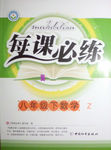题目内容
Early to bed and early to rise makes a man healthy, wealthy and wise.
This is an old English saying. Do you know it before? It says that we must go to bed early and get up early in the morning. Then we should be healthy. We should also be rich (wealthy) and clever (wise).
This is true. The body must have enough sleep to be healthy. Children of a young age should have ten hours' sleep every night. Children who don't have enough sleep can't do their work very well. They will not be wise and they may not become wealthy!
The body also needs exercise. Walking, running, jumping, swimming and playing games are all exercise. Exercise keeps the body strong.
Exercise also keeps the blood(血液)moving around inside the body. This is very important. Our blood takes food to all parts of our body. The head also needs blood. Exercise helps us to think better!
1.If a child doesn't have 10 hours' sleep every night, he .
A.will become wise B.won't do well in his work
C.will have to sleep in the daytime D.can't go to school in time
2.A person needs exercise because .
A.it makes him healthy B.it has much blood
C.it doesn't need time D.it is fun to do exercise
3.Exercise makes the ______ move quickly and smoothly.
A.body B.water C.blood D.head
4.Which of the following is not true?
A.Exercise is good for a person's thinking. B.A student should have 10 hours' sleep.
C.It's good for you to get up early and go to bed early. D.If you have enough blood, you'll be wise.
 每课必练系列答案
每课必练系列答案

